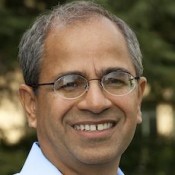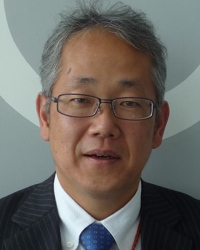Network Softwarization towards the edge: where is the frontier?
Download Presentation Materials
In the recent moves of network re-architecture, attention is currently given to network edge nodes that are leveraging a number of recent concepts like SDN, NFV and cloud-based architecture, which are all based on virtualization techniques. Cloud Computing is being complemented by the enormous processing and storage power of local edge nodes and this is raising new challenges for the future as the number of terminals, devices, smart things, machines connected to the Network is growing at an exponential rate, blurring the border between the Networks and what connects to the Networks. In particular several initiatives have recently developed to design new edges nodes integrating both IT/Cloud resources and network resources. Such initiatives include CORD (Central Office Re-architected as a Datacenter), SAVI (Smart Applications on Virtual Infrastructure) in Canada and ODN (On-Demand Networks) in Orange that all aim at providing an architectural framework in the edge that will allow true convergence between mobile and fixed access as well as flexibility and programmability offered by software components.
Other paradigms such as Fog and Mobile Edge computing are also extending cloud-based technologies up to the edge of the network, with even more distributed architecture based on smaller data centers making use of devices resources. All such elements will be key to cope with the stringent performance objectives of 5G as any terminal, devices, machines, smart things, robots, drones…will become like “network nodes” (with significant compute and storage capabilities).
The panel will address some challenges that stem from the new model based of significant network softwarization in the edge.
Moderator: Prosper Chemouil, Orange, France
Panel Members:
- Guru Parulkar, ON.Lab, USA
- Alberto Leon-Garcia, University of Toronto, Canada
- Alex Galis, University College London, UK
- Kohei Shiomoto, NTT, Japan
- Jaewoong Chung, Atto Research, Korea
Date: Tursday Jun 9, 16:00PM – 17:30PM (at Gayaguem A Hall)
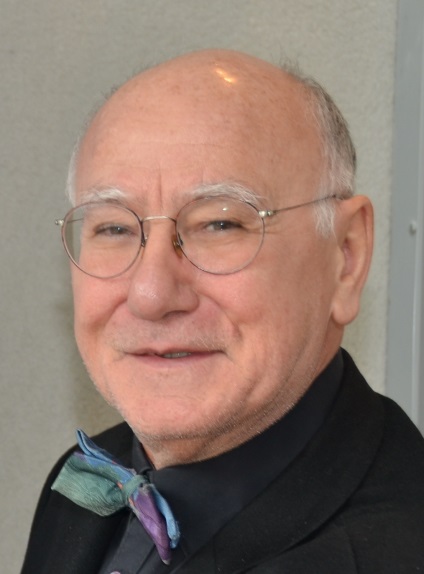 Prosper Chemouil, Orange, France
Prosper Chemouil, Orange, France
Prosper graduated from École Nationale Supérieure de Mécanique de Nantes (now Ecole Centrale de Nantes) in 1975 and obtained a PhD in control theory in 1978. He joined the Teletraffic and Network Planning Section of the then Centre National d’Études des Télécommunications (CNET, now Orange Labs) late 1980. In 1993, he became the Head of the “Network Management and Traffic Engineering” Department until the end of 1998. Next, He was a Research Program Director in the area of Traffic Modelling, Network Control and Protocol Evaluation. During this period, he has been involved in various theoretical research activities regarding traffic modelling and control. Outcomes have been implemented in several projects dealing with the design and operations of telecommunications networks and services, with a specific emphasis on dynamic routing and network management. He was next a Research Program Director on Post-IP networks until 2012, and he has been appointed Expert Program Leader on Future Networks for the whole Orange Group in 2010. His main interests are with the design and management of Future Networks and Technologies and their impact on network architecture, traffic engineering and control, and performance and quality of service (QoS). Recently, he has been specifically involved in new networking paradigms like information-centric, programmable and autonomic networking. He has been a co-founder of NetSoft and chaired the 1st NetSoft event in 2015. Prosper is the recipient of the Salah Aidarous Memorial Award (2014) and of the Arne Jensen Lifetime Achievement Award (2015), and a Fellow of the IEEE.
Guru Parulkar is Executive Director of Open Networking Research Center, Executive Director of Open Networking Lab, and Consulting Professor of EE at Stanford University. Guru has been in the field of networking for over 25 years. He joined Stanford in 2007 as Executive Director of its Clean Slate Internet Design Program. At Stanford Guru helped create three programs: OpenFlow / Software-Defined Networking, Programmable Open Mobile Internet 2020, and Stanford Experimental Data Center Laboratory. Prior to Stanford, Guru spent four years at the National Science Foundation (NSF) and worked with the broader research community to create programs such as GENI, Future Internet Design, and Network of Sensor Systems. Guru received NSF Director’s award for Program Management excellence. Before NSF Guru founded several startups including Growth Networks (acquired by Cisco) and Sceos (IPO’d as Ruckus Wireless). Guru served as Entrepreneur in Residence at NEA in 2001 and received NEA’s Entrepreneurship Award. Prior to this Guru spent over 12 years at Washington University in St. Louis where he was a Professor of Computer Science, Director of Applied Research Laboratory and the head of research and prototyping of high performance networking and multimedia systems. Guru received his PhD in Computer Science from the University of Delaware in 1987. Guru is a recipient of the Alumni Outstanding Achievement award and the Frank A. Pehrson Graduate Student Achievement award.
Alberto Leon-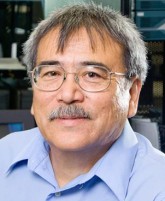 Garcia, University of Toronto, Canada
Garcia, University of Toronto, Canada
Professor Alberto Leon-Garcia is Distinguished Professor in Electrical and Computer Engineering at the University of Toronto. He is a Fellow of the Institute of Electronics an Electrical Engineering “For contributions to multiplexing and switching of integrated services traffic”. He is also a Fellow of the Engineering Institute of Canada and the American Association for the Advancement of Science. He has received the 2006 Thomas Eadie Medal from the Royal Society of Canada and the 2010 IEEE Canada A. G. L. McNaughton Gold Medal for his contributions to the area of communications. Professor Leon-Garcia is author of the textbooks: Probability and Random Processes for Electrical Engineering, and Communication Networks: Fundamental Concepts and Key Architecture. He is currently Scientific Director of the NSERC Strategic Network for Smart Applications on Virtual Infrastructures. He also leads the ORF project on Connected Vehicles and Smart Transportation. He was founder and CTO of AcceLight Networks in Ottawa, Canada.
Alex Galis , University College London, UK
, University College London, UK
Alex Galis (www.ee.ucl.ac.uk/~agalis) is a Professor In Networked and Service Systems at University College London (UCL). He has co-authored 10 research books and more that 200 publications in the Future Internet areas: system management, networks and services, networking clouds, 5G virtualization and programmability. He participated in a number of EU projects including overall technical leadership of the MISA – Management of IP networks, FAIN – programmable networks, CONTEXT – context aware networking and AUTONOMIC INTERET – autonomic networking projects. He was a member of the Steering Group of the Future Internet Assembly (FIA) and he led the Management and Service–aware Networking Architecture (MANA) working group at FIA. He acted as PTC chair of 14 IEEE conferences including TPC co-chair of IEEE Network Softwarization 2015 (NetSoft 2015 http://site.ieee.org/netsoft) and reviewer in more than 100 IEEE conferences. He also acted as a Vice-Chair of the ITU-T SG13 Group on Future Networking (www.itu.int/ITU-T/focusgroups/fn/index.html). He is currently the co-Chair of the IEEE SDN publication committee (http://sdn.ieee.org).
Kohei Shiomoto is Senior Manager of Communication & Traffic Service Quality Project, NTT Network Technology Laboratories, NTT, Tokyo, Japan. He joined the Nippon Telegraph and Telephone Corporation (NTT), Tokyo, Japan in April 1989. He has been engaged in R&D of high-speed networking including ATM, IP, (G)MPLS, and IP+Optical networking in NTT labs. From August 1996 to September 1997 he was a visiting scholar at Washington University in St. Louis, MO, USA. Since July 2012, he has been leading Communication & Traffic Service Quality Project of NTT Network Technology Laboratories, NTT, Tokyo, Japan. He received the B.E., M.E., and Ph.D degrees in information and computer sciences from Osaka University, Osaka in 1987 1989, and 1998, respectively. He is a Fellow of IEICE, a Senior Member of IEEE, and a member of ACM.
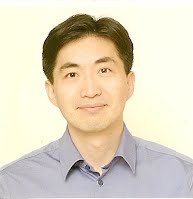 Jaewoong Chung, Atto Reasearch, Korea
Jaewoong Chung, Atto Reasearch, Korea
Dr. Jaewoong Chung is the CEO of Atto Research, specialized in software defined network and network function virtualization. He is leading Atto Research’s efforts to develop market-leading products based on SDN/NFV technologies. He worked on next-generation x86 architecture and heterogeneous computing as a senior scientist at Intel Labs from 2010 to 2012. He developed new x86 architecture for die stacking, AMD64 extension, and many-core processors for cloud computing at AMD from 2008 to 2010. He developed J2EE Web Application Server at Tmaxsoft form 2001 to 2004 and worked on a GPS-based auto navigation system at Samsung from 1999 to 2000. His research interest spans transactional memory, parallel programming, chip multi-processor. He received the bachelor’s degree and the M.S. degree from KAIST, and the Ph.D. degree of electrical engineering from Stanford University.


